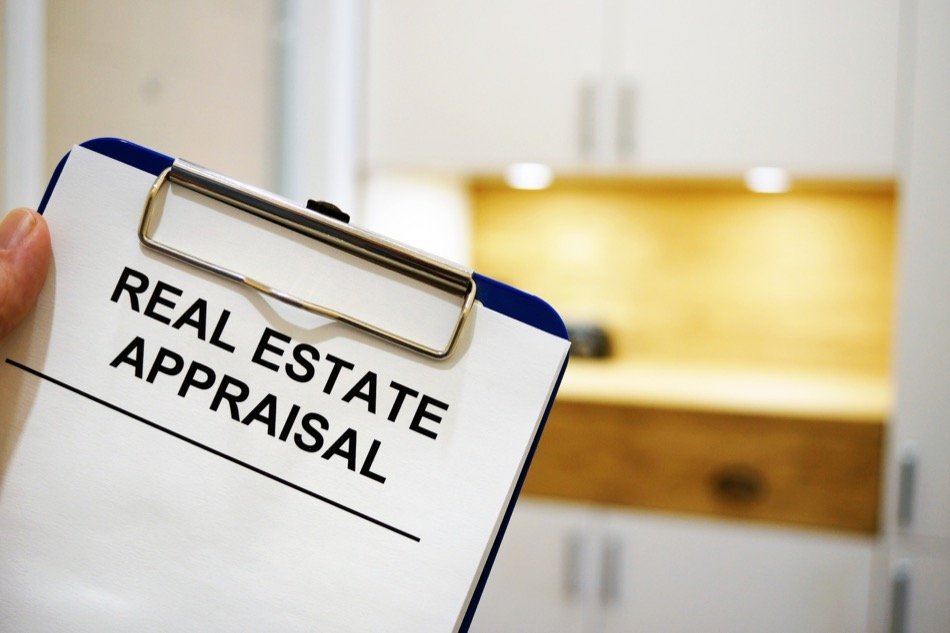Real Estate Appraisal - Key Steps And Considerations
The objective of a real estate appraisal is to determine the property's worth in the present market. To put a monetary value on the rights and obligations associated with the property, this value is crucial.
Author:Liam EvansReviewer:Habiba AshtonJan 08, 20249.4K Shares184.3K Views

The objective of a real estate appraisalis to determine the property's worth in the present market. To put a monetary value on the rights and obligations associated with the property, this value is crucial.
It's crucial to recognize the difference between a property's intrinsic value and the value determined by an unbiased third party in an arms-length transaction. In a perfectly competitive market, this predicted value would reflect the going rate.
This article will explore the concept of real estate appraisal and the various methods used to determine a property's worth. It is critical to define what a real estate appraisal is before beginning this investigation.
What Is Real Estate Appraisal?
Property appraisal, also referred to as property valuation, is the systematic process of determining the market value of a property that is on the market for sale. This assessment involves evaluating various factors, including the property's condition, location, size, amenities, prevailing market trends, and comparable sales data. Certified inspectors, appraisers, or real estate agents typically conduct real estate appraisals, utilizing diverse valuation approaches to arrive at a precise and equitable property value.
The significance of appraisals lies in their ability to safeguard buyers from paying an excessive amount for a property while simultaneously providing sellers with a fair and realistic market price for their real estate assets. Appraisals are essential for various purposes, such as facilitating buying and selling transactions, property transfers, taxation assessments, expropriations, and resolving matters related to inheritances and investments.
Throughout the appraisal process, the appraiser must consider a multitude of factors that can significantly impact the property's value. These factors encompass economic conditions, social dynamics, environmental influences, and governmental regulations.
Several distinct methods are employed in property appraisal, each serving a specific purpose. These methods include the cost approach, which evaluates the replacement cost of the property; the market comparison approach, which assesses the property's value in comparison to similar properties in the market; and the income approach, which estimates the property's value based on its income-generating potential. By employing these approaches, appraisers aim to derive a comprehensive and accurate estimation of a property's worth.
Understanding Appraisals
Appraisals play a crucial role in various transactions, particularly in real estate. In instances where the assessed value of a property, such as a home, falls below the agreed purchase price, mortgage lenders are likely to reject funding for the deal. This creates a situation where the prospective buyer must bridge the gap between the appraised value and the financing offer from the lender to proceed with the transaction.
Appraisers employ diverse valuation methods to determine the appropriate value of an item or property. This may involve comparing the current market value of similar properties or objects to establish a fair and accurate assessment.
Beyond real estate transactions, appraisals are also conducted for tax purposes, especially in determining the value of charitable donations for itemized deductions. By deducting the appraised value of the donation from taxable income, individuals can reduce their taxes owed to the IRS.
Moreover, appraisals serve as valuable tools in resolving conflicts among heirs to an estate. By establishing the value of real estate or personal property, appraisals contribute to the equitable division of assets, providing a fair basis for distribution. Overall, appraisals serve as critical instruments in financial transactions, tax planning, and conflict resolution related to property valuation.
Types Of Appraisals
Home Appraisals
A home valuation is a crucial step in the process of buying, selling, or refinancing a home, particularly in the case of a mortgage refinance, where the loan is reevaluated and updated to current interest rates and terms.
The purpose of an appraisal is to determine the current value of a home, taking into account factors such as its condition, age, location, and specific features like the number of bathrooms. This valuation ensures that the agreed-upon price aligns with the property's characteristics. Importantly, it helps banks and lenders mitigate the risk of lending more money than the home is worth.
In the unfortunate event of a borrower defaulting on their payments, the bank relies on the appraisal as a reliable valuation of the home. In situations like foreclosure, where the bank takes possession of the property, the appraisal aids in determining the property's resale value. This resale becomes essential for the lender to recover any losses incurred from the initial mortgage loan.
It's crucial to recognize that when a bank issues a mortgage, it provides the full amount of the home's value to the seller on the sale date. Essentially, the bank invests the funds upfront, relying on the borrower's promise to repay the loan along with interest. Therefore, the valuation holds significant importance in the lending process, serving as a protective measure for the bank to avoid losses and ensure it doesn't lend more than it could potentially recover in the case of borrower default.
Collectibles Or Antiques
Professional appraisals extend beyond real estate and can encompass various items like collectibles, antiques, or family heirlooms such as grandma's silver. It is advisable to seek multiple valuations from accredited professionals, who may charge either an hourly rate or a flat fee for their services.
Opting for a certified appraiser ensures a fair and unbiased valuation, in contrast to local collectible shops that may have an incentive to undervalue items. Alternatively, owners can gain a preliminary understanding of an item's worth by consulting collectible magazines or utilizing online appraisal websites.
While many online platforms charge a nominal fee, typically around $10, for item valuation, it's essential to note that these assessments are based on photos and are not official appraisals. Nevertheless, they can provide a useful estimate before pursuing a formal appraisal.
For those seeking accredited professionals, the American Society of Appraisers serves as an excellent starting point. With thousands of members, this organization can help connect individuals with certified appraisers for reliable and professional valuation services.
Appraisals And Insurance
Certain insurance policies necessitate appraisals for the goods they cover. Homeowners' and renters' insurance policies, designed to protect against the loss of personal property due to theft or damage, often have preset dollar limits for coverage. To facilitate efficient claim processing, policyholders may obtain appraisals for the contents of their homes, creating an inventory and establishing the value of their possessions.
In cases where the value of specific items exceeds the limits set by homeowners' policies, individuals may opt for additional insurance coverage, especially for high-value items such as jewelry, art objects, or antiques. Many insurance underwriters require appraisals for such items before issuing personal property insurance policies. These appraisals serve to document the item's existence, provide a detailed description, and establish its actual value.
Some insurance contracts incorporate an appraisal clause, stipulating that in the event of a dispute between the owner and the insurance company, the owner agrees to obtain an appraisal from a mutually agreeable expert. This clause aims to expedite settlement resolutions and prevent disputes from escalating into protracted and costly legal battles.
Methods Of Real Estate Appraisal
Real estate appraisal employs various methods to determine property value, with each approach serving specific scenarios:
Cost Approach
This method relies on the principle of substitution and is commonly used for assessing new buildings. The appraiser examines the property, assesses the quality of materials used, and calculates the cost of replacing the property with similar materials. This approach is particularly valuable for properties with infrequent transactions, such as schools, churches, hospitals, and public buildings.
Market Comparison Approach (Sales Approach)
In this method, the appraiser compares the subject property to recently sold properties in the same area. Factors like age, size, condition, amenities, and location are considered to determine the value of the subject property. This approach is commonly used for residential properties and helps identify the likely market price by assessing variations between comparable properties.
Income Approach
Typically applied to income-producing properties like office buildings and retail establishments, the income approach evaluates the property's worth based on its income potential. The appraiser analyzes the present value of future income, considering factors like predicted and steady expenses. If the property is expected to generate future income, the appraiser calculates the average yearly, monthly, or net income by subtracting expenses from projected revenue and dividing by the capitalization rate—an anticipated rate of return.
Home Appraisal Process And Cost
The home appraisal process typically commences after a buyer successfully makes an offer on a home and the seller accepts the offer. The buyer's mortgage lender or broker is responsible for ordering the appraisal, although the buyer is usually required to cover the associated costs out of pocket. On average, a home appraisal for a single-family property typically ranges between $300 and $450, with appraisals for multi-family homes starting at around $500.
Once the appraisal is initiated, the appraiser will schedule a visit to the property. During this visit, a comprehensive review of both the interior and exterior of the home is conducted to ascertain its value. This may involve taking measurements or capturing photos of the property. The duration of appraisals varies, ranging from a few minutes to several hours, depending on the specifics of the home and the appraiser's methodology.
Following the property visit, the appraiser utilizes the gathered information to formulate a reasonable estimate of the home's value. At this point, the appraiser also considers the values of comparable homes in the area, known as comps. Using this comparative data and insights from the property visit, the appraiser compiles an appraisal report, which includes a figure representing the perceived value of the home.
The buyer and the buyer's mortgage lender receive a copy of this appraisal report, a process that typically takes anywhere from a week to 10 days to complete. Sellers also have the option to request a copy of the report. In cases where a buyer disagrees with the appraisal report, they have the option to request a reconsideration from the lender or choose to incur the cost of a second appraisal.
How To Improve Your Home's Appraisal Value
While the appraisal process aims to be objective, it's important to acknowledge that appraisers are humans, and certain factors can influence their perception. Enhancing the curb appeal and maintaining clean, uncluttered rooms can convey the impression of a well-maintained home. These improvements don't necessarily require significant time or expense, but they can positively impact the appraised value.
Here are some quick and effective ways to enhance your home's appraised value:
- Lean and uncluttered rooms - Create an environment that suggests proper maintenance by keeping rooms lean and uncluttered.
- Minor cosmetic improvements - Implement minor cosmetic changes that can significantly improve the overall impression of your home.
- Highlight major improvements - Ensure the appraiser is aware of any major improvements you've made to the property, as they may positively influence the valuation.
It's essential to note that undertaking big, expensive improvements solely to boost the appraisal value may not yield a significant return on investment. Understanding your rights is crucial.
If you hire the appraiser to determine your home's value, the appraisal belongs to you. In cases where the lender hires the appraiser for a mortgage refinance, the lender is obligated to provide you with a copy of the appraisal and any other home value estimates, potentially for a reasonable fee.
If you disagree with the appraiser's valuation, review the written appraisal for errors and ensure the selected comparable properties are reasonably similar to your home. If discrepancies persist, you have the option to appeal the valuation with your lender or request a second appraisal.
What Is Included In An Appraisal Report?
Appraisal reports typically comprise several key sections, providing a comprehensive overview of the evaluated asset. These sections include:
- Cover page - Introduces the appraiser and their firm, along with the date of the inspection.
- Letter of transmittal - Details the party commissioning the appraisal, its purpose (e.g., facilitating the sale or supporting a financing request), and the intended legal user(s) (e.g., XYZ Bank).
- Executive summary - Offers a concise overview of key findings, potentially including the estimated value. However, it provides limited information on the methods used to arrive at the estimate and a brief description of the asset.
- Asset description - For real property or equipment, this section includes legal identifiers, such as addresses and serial numbers. It also provides an analysis of the asset, covering aspects like quality, remaining useful life, deficiencies or repairs, and recent sales history.
- Asset valuation - Offers a detailed exploration of the various valuation approaches used, along with information on comparable properties or assets supporting the analysis.
- Certificate of the appraiser - Highlights the appraiser's qualifications, enabling stakeholders to verify the credentials approved by governing bodies.
- Appendices - Includes supporting documentation such as maps, financial statements, and detailed calculations. This section accommodates additional relevant information that doesn't fit elsewhere in the report.
It's important to note that different levels of appraisals may be commissioned based on the specific needs of the stakeholders involved, similar to the varying levels found in financial statements.
Real Estate Appraisal - FAQ
What Is The Role Of The Appraisal In Real Estate?
The appraisal provides the lender with an objective assessment of the property's worth, which helps mitigate the risk of lending money to a borrower who may default on the loan. Finally, appraisals are critical for property tax assessments.
What Is The Difference Between Valuation And Appraisal?
- Appraisal -An appraisal generally serves as a pricing guide or a benchmark and often lacks legal standing. It is primarily used for internal planning or negotiations.
- Valuation -A valuation offers a definitive value and is frequently used in legal matters such as divorce settlements, estate planning, or legal disputes.
Who Created Appraisal Theory?
Lazarus argued that the experience of stress differs significantly between individuals depending on how they interpret an event and the outcome of a specific sequence of thinking patterns, called appraisals (Lazarus, 1991).
Wrapping Up
A real estate appraisalis an essential part of getting a mortgage because it can be the deciding factor in whether or not selling a home is a success. In most cases, a house appraisal is required when a mortgage is used to purchase a property.
In a similar vein, your lender may hire an appraiser to determine your property's worth if you decide to refinance. The results of these evaluations have the potential to greatly impact how the property deal develops.

Liam Evans
Author

Habiba Ashton
Reviewer
Latest Articles
Popular Articles

